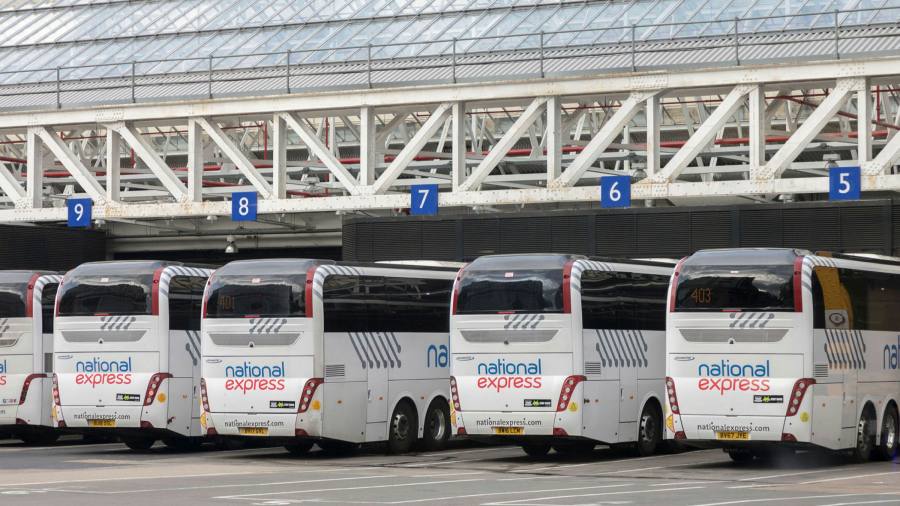[ad_1]
The biggest UK listed bus company National Express aims to snatch the business of smaller rivals in a sign of how the market may evolve as the pandemic-ravaged industry emerges from the crisis.
The Birmingham-based group’s move to win profitable contracts from weaker bus and coach operators at the brink of collapse could trigger consolidation in a sector hit by a collapse in passenger numbers.
The FTSE 250 group outlined plans on Thursday to diversify by “filling the spaces†in its current markets and entering into others as it reported heavy losses last year because of disruption from lockdown.
Other big UK bus groups are also seeking to grow as vaccinations reboot travel in some regions.
FirstGroup managed to win several large school bus contracts from competitors in the US, while Stagecoach is pursuing a strategy to diversify into new markets such as Sweden and Dubai.
In contrast, many small travel companies have buckled over the past year, with 76 passenger vehicle groups entering into insolvency, according to UK government figures. Many others will have ceased trading.
Eurolines, a long-distance coach company managed by Germany’s FlixBus, was placed into liquidation in France in July, while in the US the Baumann Bus Company in Long Island closed in March as the pandemic hit.
In a sign of its success in winning business, National Express, whose markets include the UK, North America and Spain, secured £900m of new contracts last year, despite the public transport crisis.
“We will have a bigger contractual base than we did in 2019,†said Ignacio Garat, who became National Express chief executive last November, on an earnings call. “When the pandemic is over, we’ll come out ready to rebound.â€
Among those contract wins, it secured one in New York for 100 school buses after a small operator went into liquidation and another for 60 buses in Michigan where a competitor fell out with the customer in dealing with Covid-19 pressures.
The group also secured new contracts last year to expand in Portugal and France and highlighted North America as a region with strong growth opportunities, where pandemic pressures were hitting school bus providers.
Additionally, the company launched a review of the business to identify further cost cuts. This is a similar strategy to other big groups, which have been focusing on reducing costs.
However, it did not provide earnings guidance in annual results as Covid-19 restrictions kept passengers off its buses and coaches. This led to a pre-tax loss of £445m in 2020, down from a profit of £187m a year earlier.
Shares fell 3 per cent to 304.7p by lunchtime on Thursday in London as investors were prepared for losses with passenger numbers falling as much as 80 per cent in March last year when lockdown measures were introduced.
Since then, the group has experienced a slow recovery with the fourth quarter in 2020 its strongest. Revenues and earnings slowly improved in the first two months of this year.
“The timing of full recovery remains uncertain as we are still subject to lockdowns and related restrictions in every market we operate in,†said Garat.
The group raised £1.5bn in equity in the year, which contributed to an approximate £300m decline in net debt that fell to £941.6m.
[ad_2]
Source link





